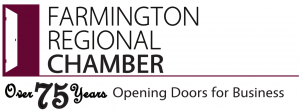Work/Life fluidity is today’s workforce want.
The term 'flexibility' often carries negative connotations, especially in traditional work arrangements. When people hear the term, they may associate it with part-time work or view it as a lack of commitment or dedication.
This perception stems from the traditional mindset, where fixed working hours and rigid schedules were valued more than adaptability for life events.
However, in recent times, there has been a shift in how individuals perceive work and frankly what they want, expect and demand.
In all types of work environments – office, from home, production and labor, , people are looking for freedom to choose how they work.
Many have called it 'work/life balance', striving to prioritize their personal life and career demands equally
However, for the others who work long hours or have a newborn baby, the term simply doesn’t work, creating more stress and guilt from the inability to balance the schedules.
Employees should be able to choose a work environment that allows them to have a better integration of work and life. As a result, a new term emerges --work fluidity.
Creating a mindset of functioning imbalance
Work/life fluidity is a concept that challenges the traditional notion of work/life balance.
It emphasizes the importance of setting expectations and accepting flexibility and adaptability in planning for both aspects of work and life creating a new challenge for managers how to get the work done.
It recognizes that individuals have different motivations, priorities, and responsibilities outside of work. Work doesn't necessarily have to be confined to a specific schedule or even location in some instances.
For example, work/life fluidity can mean leaving work slightly earlier to spend time with family or attending to personal commitments and then continuing work in the evening or working more hours on another day.
The goal is to find a balance that works for individuals, allowing them to meet their personal obligations while also fulfilling their work responsibilities including working a standard less than 40 hours per week schedule.
Flexibility goes beyond just hours or location. It encourages individuals and managers to work together to find creative solutions and work styles that suit their needs and maintain productivity.
Making work/life fluidity work
Companies that embrace work/life fluidity can create an environment where employees feel empowered to manage their time and responsibilities while maintaining productivity, efficiency, and quality standards for profitability.
This can lead to greater job satisfaction, higher productivity, and increased employee retention.
Implementing work life fluidity requires a significant change in mind set, an openness, and a release of traditional thoughts, biases and criticism therefore understanding individual motivations, values, and priorities of today’s world.
It involves open communication between employers and employees to find ways to align personal and professional needs.
Setting clear boundaries, prioritizing tasks, and having a well-planned schedule are essential to maintaining a successful work/life fluidity approach and to ensuring customer needs are also met. Flexibility should be balanced with the need for collaboration, teamwork, and meeting organizational goals.
For those working from home it may involve working in short bursts throughout the day, fitting in work between other aspects of life.
Tools and strategies that help manage this fluidity, such as time-tracking software or task management systems, can be particularly useful in maintaining efficiency and meeting deadlines.
Ever since the pandemic, people increasingly want the autonomy and liberty to choose their work hours, location, and work arrangements to achieve a better life based on their unique circumstances.
By prioritizing personal values alongside work commitments, individuals can achieve a more harmonious work-life flow, resulting in greater satisfaction and overall well-being.
If you think this is “off the wall” and even ridiculous. Don’t get me started -- we understand and even agree to a certain extent.
But that might be the problem. No, more definitively THAT IS THE PROBLEM!
Effective Managers and Leaders must begin to adapt to the world today and what inspires, engages, motivates their workforce their team members or we can sit around and discuss and agree how it shouldn’t be that way, how lazy and uncommitted people are today and that we shouldn’t have to do this.
On the bright side -- we won’t have to do it because we won’t have a team to lead or meet our customers, needs.
I don’t think that is what we want.
Instead let’s be open, learn, grow, and do the things that are going to provide our best team and culture to be successful and profitable.
The very best of luck.
Those who embrace and adapt will win, those who don’t/aren’t, won’t and will lose.
Reality folks! It is 2023.

Tony Myers currently serves as the Vice President HR for US Tool and has over 35 years of human resources experience. After graduating from Fredericktown High School, he went on to Mizzou where he accomplished a triple major in Business, Communications, and Social Behavioral Science. He is certified in several national programs including The 7 Habits of Highly Effective People, Leadership Through People Skills and is a Certified Executive Leadership Coach. In his free time, he and his wife De De enjoy friends, outdoor activities, boating, and sports.
